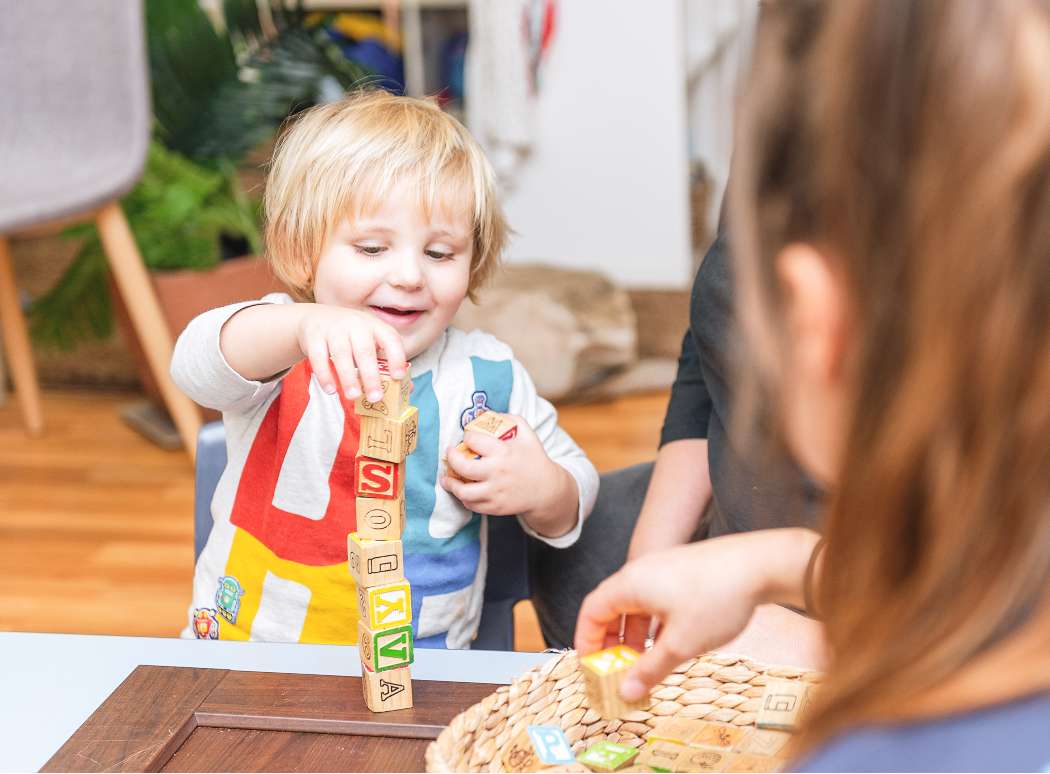National Science Week is upon us again – this is Australia’s annual celebration of science and technology, running from 13 – 21 August in 2022. Supported by the Australia Government, it aims to acknowledge the contributions of Australian scientists and to encourage a wider interest in science pursuits. For early childhood education learning environments, it is also a great opportunity to extend upon young children’s fascination and curiosity about the world around them.
At our G8 centres, our experienced educators and teachers create play-based and child-led early childhood STEM learning experiences to enable the development of inquiry skills and understandings necessary to navigate and thrive in an ever-changing world.
What is STEM?
The acronym STEM stands for Science, Technology, Engineering and Mathematics. STEM experiences aim to integrate conceptual knowledge and processes of thinking across two or more domains in an activity of interest, ritual or routine that is significant and relevant to the lives of young children. In our centres, our approaches for facilitating STEM education in the early years align best with inquiry-based or project-based learning experiences, where opportunities for shared learning experiences between children and educators and teachers can be co-constructed and built upon over time.

At Creative Garden Arundel, children were involved in rich learning experiences around space and created a rocket ship, space helmet, and oxygen tanks.
Concepts of STEM in early learning
At our centres, the educators and teachers integrate STEM concepts into young children’s everyday play themes and education practices to further promote their love of science. For example:
Science
- Exploration of the needs of plants and animals • Curiosity with natural phenomenons, such as weather, gravity, night and day, tides, seasons
- Exploration and investigation of natural, edible, and man-made materials through cooking, arts and crafts and outdoor play experiences
- Exploration of movement energy, including forces such as pulling and pushing, speed of movement, temperature, density, sinking and floating
Technology
- Incorporating and manipulating materials
- Using digital technologies to enhance and extend upon play-based open-ended learning experiences
Engineering
- Designing and creating structures
- Understanding how things work through tinkering
Mathematics
- Counting and using numbers
- Informal measurement. For example, using own body and/or everyday objects to measure and compare
- Time, size, distance and quantities
- Movement through space

At Community Kids Empire Bay, children are provided with interactive hands-on learning experiences to promote their love of science and build on their early numeracy skills.
How we help foster the children’s love for science
Our educators and teachers provide open-ended materials that promote curiosity, creativity and innovation. They collaboratively discuss, plan, draw, build and test out children’s ideas. Based on the children’s interests and ideas, educators and teachers implement inquiry-based learning experiences. These learning experiences aim to build on each child’s individual strengths, knowledge and skills.
During the learning experiences, our educators and teachers listen to how children are involved in scientific thinking and thinking about science. They observe how children engage with resources, as well as their questions, wonderings, hypotheses and ideas. They also make themselves available to co-play and co-investigate with children frequently.

At Bambino’s Kindergarten Harrington Park North, children learned about the theory of motion and explored how gravity works.
Educators and teachers also revisit their daily routines and provide feedback, and share ideas with children during play. In our centres, our educators and teachers also introduce elements of Aboriginal and Torres Strait Islander culture and perspectives relevant to weather patterns, caring for country, sourcing food, and creating shelter. By celebrating ball scientists through the use of images and articles, we teach children about equality and inclusivity in STEM.
In early childhood settings, STEM does not need to be big experiments involving lots of equipment. At our G8 centres, we foster children’s love of STEM by enabling children to investigate, to explore and take calculated risks, by encouraging them to ask and respond to questions about the real world, and by being active participants in their own learning.
